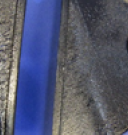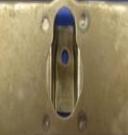During the development of ArmaKleen’s M-100 BCR (baked on carbon), we conducted field trials along with using it in our washers here in the Rocky Hill Technical Center. We have one of the cleaning trials up on the ArmaKleen website now – click here to read it – and will be publishing subsequent cleaning trials using M-100 BCR in upcoming weeks.
I was asked the follow up question, “If I am understanding these trials correctly, it indicates the M-100 BCR took 8 hours (to clean parts) and the 4-in-1 took 2-4 hours (in their cleaning trials). Am I missing something here?”
This is an important question, for when you compare cleaning trials using M-100 BCR to ones using other ArmaKleen chemistries, like our 4-in-1 cleaner, you may notice a time difference in how long it takes to remove the carbon from the parts being cleaned when using M-100 BCR.
Comparisons between cleaning trials can be like “comparing apples to oranges” since soils other than baked on carbon were being cleaned from the parts in the trials using other aqueous cleaners. Some of the soils look like baked on carbon but they really are just very viscous greases. Over long periods of time the more volatile components in greases and oils evaporate leaving behind the less volatile components. This “cooked” grease and oil looks like baked on carbon but it is still chemically hydrocarbons.
One of the problems we needed to tackle when developing the M-100 BCR was in the removing of baked on carbon. Baked on carbon is a difficult to remove soil since chemically it is pure carbon. Baked on carbon doesn’t like to dissolve in organic solvents and it doesn’t like to dissolve in water. Usually you need some sort of mechanical action to remove the pure carbon.
With steel alloys there were options to remove the carbon. You could heat the steel up above the combustion point for carbon and burn it off. You could manually scrape it off. You could use an ultrasonic washer with a cleaner. The ultrasonic waves would remove the carbon with the cleaner helping to reduce the surface tension allowing pieces of the carbon to separate from the bulk mass.
However, parts made with aluminum alloys cannot be cleaned in an Ultrasonic Washer because the ultrasonic waves create deformation effects that we refer to as "starring" and "spiderwebbing" on the softer surface. These are permanent star-shaped and spider webbed-shaped etch markings imparted to the aluminum surface. Furthermore, cleaning trials we have conducted on aluminum alloy parts using our 4-in-1 cleaner in other part washers failed to remove the baked on carbon residues from the parts being cleaned. Baked on carbon likes to stay put.
We needed a cleaner that could remove baked on carbon without the large mechanical energy input that an Ultrasonic Washer imparts. While it did take 8 hours for the parts to become clean using M-100 BCR, that was 8 hours a worker did not have to stand there scrubbing, plus the carbon exhaust and baked on carbon from the interior of the manifold was actually removed. The parts spent their 8 hours being cleaned with ArmaKleen M-100BCR in a Spray Under Immersion washer which imparts less energy to part’s surfaces than an Ultrasonic Washer.
If you are interested in seeing if ArmaKleen’s M-100 BCR cleaner would benefit your parts cleaning program, we are conducting cleaning trials using M-100BCR at Rocky Hill Tech Center. The cleaning trial is a free service, and at the conclusion of the cleaning trial the customer’s cleaned parts are returned for evaluation and a detailed report is provided explaining the cleaning processes used, the results of each trial, before and after pictures of the parts, and recommendations. Click here to read more details about the cleaning trial process, and access the cleaning trial request form




